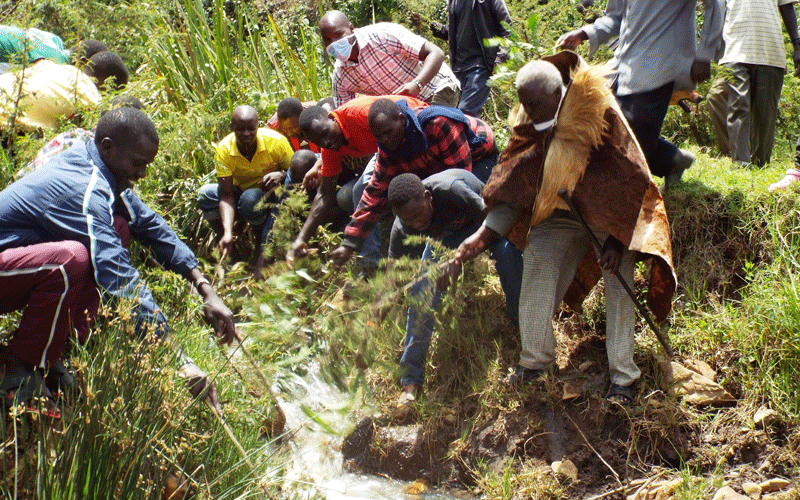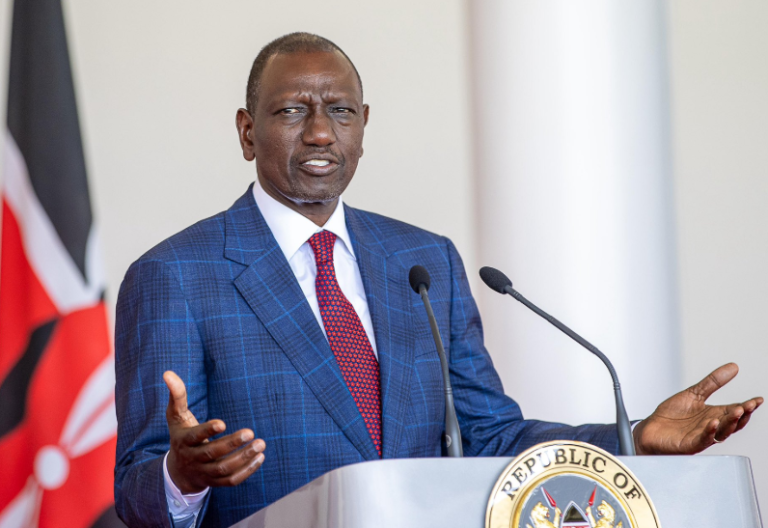Covid-19 silences rustlers’ guns in bandit escarpment

Jeremiah Chesir, 68, would be camping at the Kerio Valley escarpment at this time preparing his land for the planting season due to fear of imminent attack from heavily armed cattle rustlers along the expansive valley.
But the guns have suddenly gone silent in the volatile region that borders bandit- prone counties of West Pokot, and Baringo after the government confirmed the first case of the deadly coronavirus in the country over a month ago
Chesir says the Covid-19 pandemic has brought the residents of Kerio Valley some relief as cases of insecurity perpetrated by the bandits from neighbouring counties have disappeared.
He avers that though the virus has caused havoc worldwide, it has given them some form of peace as he recollects how he has lost close relatives and friends at the hands of the armed bandits for over three decades.
Coronavirus outbreak
“The bandits had taken over the valley roaming freely as they cause havoc while we sleep in the caves and escarpment for fear of fresh attacks but things are now different courtesy of the outbreak of corona virus,” asserts Chesir.
He says they expect bumper harvests from maize, cassava, millet, mangoes, and arrow roots on their farms along the Kerio Valley, which had been deserted following spade of high voltage cattle rustling and banditry attacks.
He attributes this to a raft of measures the government has put in place to contain the rapid spread of the virus with key among them people to stay indoors and the dusk-to-dawn curfew order.
“We can now troop back into our farms to plant crops in the wake of pounding rainfall. Since the first case of coronavirus pandemic was confirmed in the country our enemies no longer come to attack us for fear of contracting the deadly virus and also the 7pm and 5am curfew that was imposed by the government,” says Chesir.
For four year, Chesir says, the residents of poverty-ravaged valley have never had peace due to frequent attacks that have resulted in death of more than 200 people, among them school children.
The daring daylight deadly attacks have led to displacement of hundreds of families from their homes and besides, closure of hospitals, public primary and secondary schools.
Lucia Talai, 78, says the spate of insecurity had forced her to relocate her herbal business to Eldoret town some 200km away since she was tired of frequent conflicts over pasture and water among the warring communities in the region.
“This coronavirus thing has really helped to tame our neigbours from crossing over to our area to cause havoc.
I can now go into the forest to secure various herbs for my customers without fear of being ambushed by the bandits,” says Talai.
Talai, who hails from Tot in Marakwet East which is the epicentre of the frequent deadly banditry attacks, says her sons have started to troop back to their abandoned farms in preparation for planting season following an air of silence in the former volatile region.
She tells of how the bandits had caused massive damage to community projects in the region initiated by various none-government organisations, the national and county governments worth millions of shillings.
Talai recalls how she watched helplessly from her hide-out as the bandits dismantled water pipes connected to their farms by the regional government to improve their social and economic status.
“One day, a group of armed bandits raided our village and disconnected water pipes that had been connected for us by Elgeyo Marakwet County so as to venture into irrigation farming,” says Talai.
Former Endo Ward Representative in Marawet East, Festus Kirop says Covid-19 , which continues to cause a major worry globally, has put a smile on the residents of the valley due to prevailing peace and harmony.
“Several income-generating activities are going on peacefully in Kerio Valley as the coronavirus has really scared away the bandits from invading our area for cattle, water and pasture,” he says.
Elgeyo Marakwet County Commissioner Ahmed Omar attributes the current peace being enjoyed in the Valley to frequent peace meetings among the warring communities and political leaders.
“The current peace and tranquility being enjoyed in the vast region is badly due to political goodwill and frequent peace forums that we have been holding between the feuding communities,” said Omar.
He, however, said the government has intensified security patrols on the bandit prone borders of the affected counties of West Pokot and Baringo to restore law and order.
“As you can see, investors who had moved out of the region due to insecurity have started to troop back to initiated new projects and spur development in the Kerio Valley,” said Omar.














